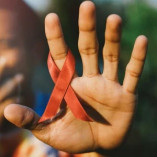Get Informed Topics Himarika Transmission and Prevention Can male circumcision prevent HIV?
Can male circumcision prevent HIV?
It is crucial to emphasize that male circumcision should not be considered a standalone method for HIV prevention. Safe sexual practices, such as consistent condom use and monogamous relationships, are still essential for reducing the risk of transmission.
Furthermore, male circumcision does not offer complete protection against HIV. Engaging in high-risk behaviors, sharing needles for drug use, and having unprotected sex with HIV-positive partners still pose significant risks.
Male circumcision does not provide protection against HIV infection; it only lessens the chances that a man will acquire the virus. Male circumcision involves the surgical removal of the foreskin, the tissue covering the head of the penis.
Correct and consistent use of male or female condoms, reduction in the number of sexual partners, abstaining from penetrative sex and testing more often can reduce your chances of getting HIV.
Fact: Circumcised men can still become infected with the virus and if HIV-positive, can infect their sexual partners.
Top related facts to Transmission and Prevention
Frequently Asked Questions
Male Body
1 questions
See frequently asked questions on Male Body
Let's Talk
Facts, tips, stories and common questions
Go to Forum




